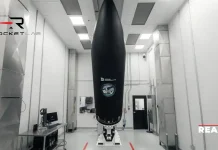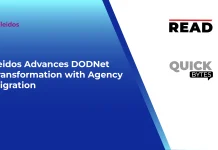Soligenix, Inc. (Soligenix or the Company), a late-stage biopharmaceutical company focused on developing and commercializing products to treat rare diseases where there is an unmet medical need, announced that the United States Patent and Trademark Office (USPTO) has issued a Notice of Allowance for the patent application titled “Compositions and Methods of Manufacturing Trivalent Filovirus Vaccines.” The allowed claims are directed to unique, proprietary compositions and methods directed to combinations of glycoprotein antigens with nanoemulsion adjuvants comprising sucrose fatty acid esters prior to lyophilization. The described vaccine platform has previously been successfully applied to filovirus vaccines (as mono-, bi- and tri-valent candidates for Zaire ebolavirus, Sudan ebolavirus and Marburg marburgvirus) as well as a SARS-CoV-2 vaccine.
The candidate filovirus vaccines have been previously shown to protect non-human primates (NHPs) from subsequent infection, and represent the only recombinant subunit vaccines that have demonstrated efficacy against Zaire ebolavirus and other filoviruses in NHPs. Lyophilization of the antigens within monovalent vaccine formulations has also been demonstrated to thermostabilize the antigens at temperatures as high as 40 degrees Celsius (104 degrees Fahrenheit) for up to 12 weeks, enabling storage at ambient temperature. No currently licensed lyophilized vaccine that contains an adjuvant is presented in a single vial format and there are few reports of successfully using nano-emulsions in lyophilized formulations. Previous work has demonstrated the use of a single vial platform to co-lyophilize antigen(s) and a nanoemulsion adjuvant, CoVaccine HT™, maintaining key adjuvant stability characteristics including particle size and colloidal stability, as well as maintaining immunogenicity. This most recent milestone confirms that, in the context of lethal challenge with Sudan ebolavirus, complete protection is maintained with the thermostabilized formulation.
“Filoviruses such as Zaire ebolavirus, Sudan ebolavirus and Marburg marburgvirus are some of the most lethal viruses known, and they are endemic in areas of the world where the power supply and distribution network can be uncertain. There are no vaccines for either Sudan or Marburg viruses, while approved vaccines for Zaire ebolavirus are constrained by cold chain logistics. Availability of a single-vial, heat stable vaccine would significantly enhance global public health preparedness or response to a new outbreak, at its source,” stated Axel Lehrer, PhD, Associate Professor, Department of Tropical Medicine, Medical Microbiology and Pharmacology, John A. Burns School of Medicine (JABSOM), University of Hawaiʽi at Mānoa (UHM). “Our work to date has demonstrated the feasibility of rapid and efficient manufacturing, as well as the ability to thermostabilize multiple antigens that can then be stored at temperatures exceeding 100 degrees Fahrenheit. Having a vaccine platform such as this available has the potential to accelerate worldwide vaccination campaigns addressing future health emergencies, including other global pandemics as seen with COVID-19.”




